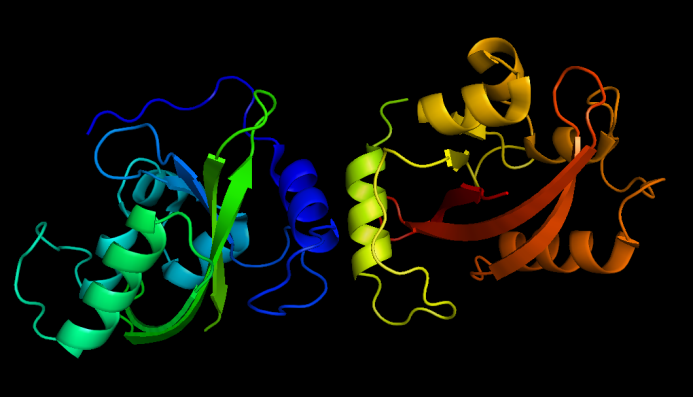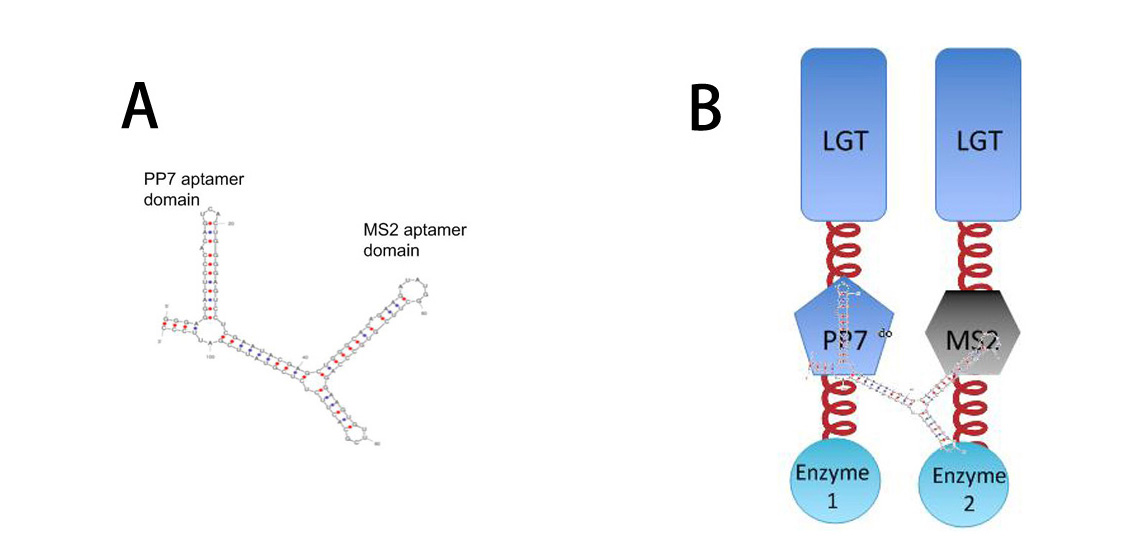Basic Parts of System
[http://partsregistry.org/wiki/index.php?title=Part:BBa_K771101 Membrabe Anchor 0 (BBa_K771101)]
SsDsbA is the signal recognition particle (SRP)-dependent signaling sequence of DsbA. SsDsbA-tagged proteins are exported to the periplasm through the SRP pathway. With ssDsbA fused to the N-terminus, engineered membrane proteins are expected to be anchored onto inner membrane of E.coli .
β-lactamase,a bacterial enzyme which must be exported to the periplasm in order to confer significant resistance to β-lactam antibiotics, such as ampicillin. Note that N-terminus of Lgt faces the periplasm and C-terminus faces the cytoplasm. Hence, if our fusion membrane protein is correctly anchored to membrane, β-lactamase is expected to be functional and host cells should be able to grow on culture media containing ampicillin.
[http://partsregistry.org/wiki/index.php?title=Part:BBa_K771102 LGT (BBa_K771102)]
To avoid toxicity caused by foreign membrane proteins, we chose phosphatidylglycerol:: prolipoprotein diacylglyceryl transferase (Lgt) as transmembrane domain in the project. Lgt is an inner membrane protein of E.coli with seven transmembrane segments and has been successfully over expressed in E. coli without causing harm to cells.
[http://partsregistry.org/wiki/index.php?title=Part:BBa_K771103 ssDsbA-PDZ Domain (BBa_K771103)] and [http://partsregistry.org/wiki/index.php?title=Part:BBa_K771104 ssDsbA-PDZ Ligand (BBa_K771104)]
interacting protein domain and ligand from Mouse
[http://partsregistry.org/wiki/index.php?title=Part:BBa_K771105 GBD Domain (BBa_K771105)] and [http://partsregistry.org/wiki/index.php?title=Part:BBa_K771106 GBD Ligand (BBa_K771106)]
interacting protein domain and ligand from Rat
[http://partsregistry.org/wiki/index.php?title=Part:BBa_K771107 SH3 Domain (BBa_K771107)] and [http://partsregistry.org/wiki/index.php?title=Part:BBa_K771108 SH3 Ligand (BBa_K771108)]
interacting protein domain and ligand from Mouse
[http://partsregistry.org/wiki/index.php?title=Part:BBa_K771109 VVD(C71V and N56K) (BBa_K771109)]
Vivid(VVD) protein, a photoreceptor of Neurospora crassa can form dimer in the presence of blue light and disassociate as light is off. Besises, VVD protein belongs to the Per-Arnt-Sim(PAS) protein superfamily.
Compared with wildtype VVD, VVD mutant (C71V and N56K) is harder to dimerize in the dark and easier to dimerize under blue light .
[http://partsregistry.org/wiki/index.php?title=Part:BBa_K771111 2xPP7 (BBa_K771111)] and [http://partsregistry.org/wiki/index.php?title=Part:BBa_K771112 MS2 (BBa_K771112)] and
[http://partsregistry.org/wiki/index.php?title=Part:BBa_K771009 RNA-d0(BBa_K771009)]
A: Sketch of signal RNA molecule (called D0) which consists of PP7 and MS2 aptamer domains.
B: Through fusing PP7 and MS2 protein to our membrane device, RNA molecule in Figure A can function as a bridge to connect different proteins, thus decreasing distance between corresponding proteins
[http://partsregistry.org/wiki/index.php?title=Part:BBa_K771113 Split EGFP 1 (BBa_K771113)] and [http://partsregistry.org/wiki/index.php?title=Part:BBa_K771114 Split EGFP 2 (BBa_K771114)]
In fluorescence complementation assay, proteins that are postulated to interact are fused to unfolded complementary fragments of EGFP and expressed in E.coli. Interaction of these proteins will bring the fluorescent fragments within proximity, allowing the reporter protein to reform in its native three-dimensional structure and emit its fluorescent signal.
EGFP was split into two halves, named 1EGFP and 2EGFP respectively. If there is interaction between two proteins which were fused with 1EGFP and 2EGFP, it is expected that fluorescence should be observed. Otherwise, no fluorescence could be observed.
|
 "
"


